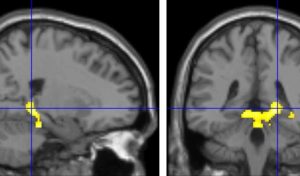 This study reinforces (once again) that actively playing with toy blocks is good for developing the spatial skills and spatial abilities of children. Other studies have shown that playing with puzzles and actively going out and exploring their environment (like riding a bicycle around the neighborhood) are also good for developing spatial skills and spatial abilities. For both boys and girls. Even though unfortunately this study only looked at 8 year old boys. (Hey, where were the girls???) Remember that playing is how children learn, and helping develop spatial skills is good for math, science, and technology. So get out the Legos and toy blocks and encourage children to play and build! From Medical Xpress:
This study reinforces (once again) that actively playing with toy blocks is good for developing the spatial skills and spatial abilities of children. Other studies have shown that playing with puzzles and actively going out and exploring their environment (like riding a bicycle around the neighborhood) are also good for developing spatial skills and spatial abilities. For both boys and girls. Even though unfortunately this study only looked at 8 year old boys. (Hey, where were the girls???) Remember that playing is how children learn, and helping develop spatial skills is good for math, science, and technology. So get out the Legos and toy blocks and encourage children to play and build! From Medical Xpress:
Neuroimaging study: Building blocks activate spatial ability in children better than board games
Research from Indiana University has found that structured block-building games improve spatial abilities in children to a greater degree than board games. The study, which appears in the journal Frontiers in Psychology, measured the relative impact of two games—a structured block-building game and a word-spelling board game—on children's spatial processing, including mental rotation, which involves visualizing what an object will look like after it is rotated. The research lends new support to the idea that such block games might help children develop spatial skills needed in science- and math-oriented disciplines.
Block play changed brain activation patterns," Newman said. "It changed the way the children were solving the mental rotation problems; we saw increased activation in regions that have been linked to spatial processing only in the building blocks group." The structured block-building game used for the study was called "Blocks Rock"; the board game was Scrabble.
The research builds upon previous studies that have shown that children who frequently participate in activities such as block play, puzzles and board games have higher spatial ability than those who participate more in activities such as drawing, riding bikes, or playing with trucks and sound-producing toys.
It is also demonstrates that training on one visuo-spatial task can transfer to other tasks. In this instance, training on the structured block-building game resulted in transfer to mental rotation performance.....To conduct the study, IU researchers placed 28 8-year-olds in a magnetic resonance imaging scanner before and after playing one of the two games. Play sessions were conducted for 30 minutes over the course of five days.
There were no differences in mental rotation performance between the two groups in either the brain activation or performance during the first rotation test and scan. But the block play group showed a change in activation in regions linked to both motor and spatial processing during the second scan. The group who played board games failed to show any significant change in brain activation between the pre- and post-game scans, or any significant improvement on the mental rotation test results.
 Scans of the children's brains show increased activation in the anterior lobe of the cerebellum and the parahippocampus during the second mental rotation test, which was administered after they played with blocks. Credit: Indiana University
Scans of the children's brains show increased activation in the anterior lobe of the cerebellum and the parahippocampus during the second mental rotation test, which was administered after they played with blocks. Credit: Indiana University
